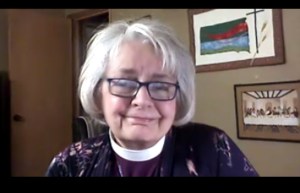
by Northeastern Iowa Synod Interim Bishop Andrea DeGroot-Nesdahl
Since the early days of our existence as the Evangelical Lutheran Church in America (ELCA), we have had guidelines for how we will interact with/behave towards each other.
Often these have been recognized as guidelines for ordained/rostered leaders, but in fact they are for all of us, for congregations, and they apply to all members of the Body of Christ who identify as ELCA Lutherans, as well.
Over recent months the existing Definitions and Guidelines for Discipline have been under review by the Discipline Committee of the ELCA. A number of drafts have been reviewed by ELCA Church Council, and the Conference of Bishops, and others. At its April, 2021, meeting the ELCA Church Council passed the newest version of this document (the entire document is available on the ELCA website, and the NE Iowa Synod website). So it is timely for me to mention this new version here for your information, lay and rostered alike, and to encourage you to review it, and take its message to heart. The “message” is expressed in this paragraph near the beginning of the document:
“When the gift of relationship with God and our neighbors is violated or used inappropriately, there is a need for accountability and just action. It is in this context that we, as a church body, establish guidelines for our conduct, actions, and ways in which we communicate with one another. These guidelines are necessary as we “continue in the covenant God made with us”2 in our baptism to ensure that all people, and the church in particular, are protected from harmful or inappropriate actions, speech, communications, or other misconduct. As church, we must abide in a context that holds ourselves, and one another, to account for the sake and care of the whole church.”
I like several things about this paragraph and it’s description of why we would as a Church have need of Definitions and Guidelines for Discipline of ourselves.
I specifically like the description of our relationships to one another as a Gift from God which sets the framework for the document. I am reminded that through Baptism we are made family, siblings in Christ, and therefore in relationship with one another.
We talk about our church relationships with words that echo that understanding: “My church family”, “Our family’s pastor”, “Our Church Home”, and so on. Deeply rooted relationships are anchored together at the Cross of Christ in our congregations, binding us to one another as families of faith. And, like most families, we will from time to time run amuk with each other, find ourselves at odds with each other, develop negative patterns of speaking about one another, act totally inappropriately with or to one another, and so on.
The message of these guidelines is not that those times of disagreement or discord should never arise in Church, for we know we are human wherever we are on God’s earth, so our humanness is bound to lead us into hard times with each other from time to time. The message of these guidelines is that in those times of difficulty we commit to handling ourselves in these ways:
“…to ensure that all people, and the church in particular, are protected from harmful or inappropriate actions, speech, communications, or other misconduct. “
These Guidelines provide guidance for us as leaders, members, and congregations to live out the expectations of our faith with one another, and the world.
“To do justice, love kindness, and walk humbly with our God”-, as Micah 6:8 reminds us.
We help ourselves be more accountable in our lives of discipleship with documents like these; “to continue in the covenant God made with us at Baptism.”
I look forward to hearing from you after you review the document if you’d like to discuss it further.
Resources

